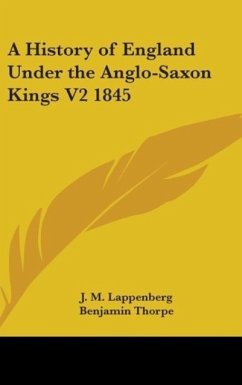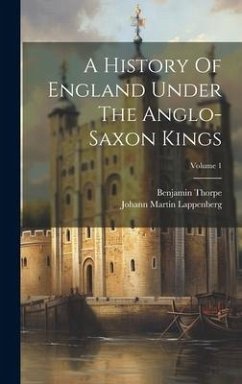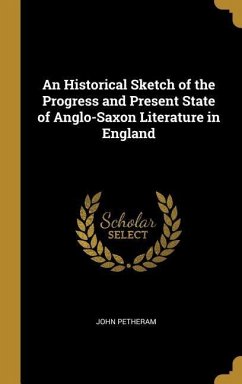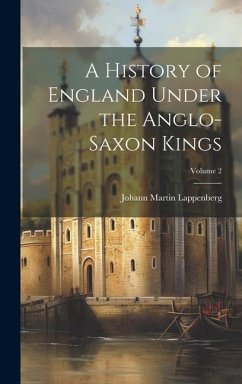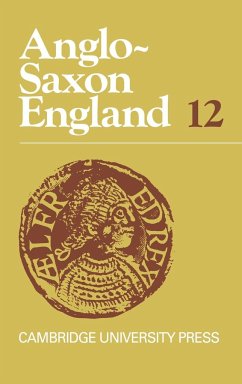
Anglo-Saxon England
Volume 12
Herausgeber: Clemoes, Peter; Keynes, Simon
Versandkostenfrei!
Versandfertig in 1-2 Wochen
87,99 €
inkl. MwSt.

PAYBACK Punkte
44 °P sammeln!
Four very different kinds of Anglo-Saxon thinking are clarified in this volume - traditions, learned and oral, about the settlement of the country, study of foreign-language grammar, interest in exotic jewels as reflections of the glory of God, and (surprisingly, no doubt, to some) a mainly rational attitude to medicine. Publication of no less than three recent discoveries augments our corpus of manuscript evidence. The nature of Old English poetry is illuminated - as a variety of oral expression and as exemplified in a particular poet's treatment of a particular Latin source. A useful summary...
Four very different kinds of Anglo-Saxon thinking are clarified in this volume - traditions, learned and oral, about the settlement of the country, study of foreign-language grammar, interest in exotic jewels as reflections of the glory of God, and (surprisingly, no doubt, to some) a mainly rational attitude to medicine. Publication of no less than three recent discoveries augments our corpus of manuscript evidence. The nature of Old English poetry is illuminated - as a variety of oral expression and as exemplified in a particular poet's treatment of a particular Latin source. A useful summary of the present state of editorial treatment of textual properties in Beowulf is provided. As usual the concluding item is a systematic bibliography of recent work in all branches of Anglo-Saxon studies - this time the publications of 1982.
Table of contents:
List of illustrations; 1. The settlement of England in Bede and the Chronicle Patrick Sims-Williams; 2. The study of Latin grammar in eighth-century Southumbria Vivien Law; 3. Lapidary traditions in Anglo-Saxon England: part II, Bede's Explanatio Apocalypsis and related works Peter Kitson; 4. A fragment of Bede's De Temporum Ratione in the public record office Michael Roper; 5. A fragment of an early-tenth-century Anglo-Saxon manuscript and its significance M. B. Parkes; 6. Neumed Boethian metra from Canterbury M. T. Gibson, M. Lapidge and C. Page; 7. Bald's Leechbook: its sources and their use in its compilation M. L. Cameron; 8. Literary art and oral tradition in Old English and Serbian poetry John Miles Foley; 9. A reading of Andreas: the poem as poem Edward B. Irving, Jr; 10. The formative stages of Beowulf textual scholarship: part II Birte Kelly; 11. Bibliography for 1982 Carl T. Berkhout, Martin Biddle, Mark Blackburn, T. J. Brown, C. R. E. Coutts and Simon Keynes.
Four very different kinds of Anglo-Saxon thinking are clarified in this volume - traditions, learned and oral, about the settlement of the country, study of foreign-language grammar, interest in exotic jewels as reflections of the glory of God, and (surprisingly, no doubt, to some) a mainly rational attitude to medicine.
A useful summary of the present state of editorial treatment of textual properties in Beowulf is provided.
Table of contents:
List of illustrations; 1. The settlement of England in Bede and the Chronicle Patrick Sims-Williams; 2. The study of Latin grammar in eighth-century Southumbria Vivien Law; 3. Lapidary traditions in Anglo-Saxon England: part II, Bede's Explanatio Apocalypsis and related works Peter Kitson; 4. A fragment of Bede's De Temporum Ratione in the public record office Michael Roper; 5. A fragment of an early-tenth-century Anglo-Saxon manuscript and its significance M. B. Parkes; 6. Neumed Boethian metra from Canterbury M. T. Gibson, M. Lapidge and C. Page; 7. Bald's Leechbook: its sources and their use in its compilation M. L. Cameron; 8. Literary art and oral tradition in Old English and Serbian poetry John Miles Foley; 9. A reading of Andreas: the poem as poem Edward B. Irving, Jr; 10. The formative stages of Beowulf textual scholarship: part II Birte Kelly; 11. Bibliography for 1982 Carl T. Berkhout, Martin Biddle, Mark Blackburn, T. J. Brown, C. R. E. Coutts and Simon Keynes.
Four very different kinds of Anglo-Saxon thinking are clarified in this volume - traditions, learned and oral, about the settlement of the country, study of foreign-language grammar, interest in exotic jewels as reflections of the glory of God, and (surprisingly, no doubt, to some) a mainly rational attitude to medicine.
A useful summary of the present state of editorial treatment of textual properties in Beowulf is provided.





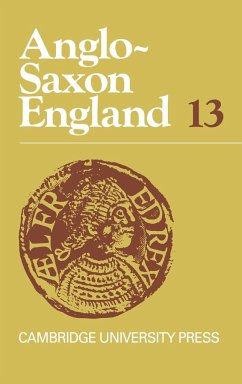
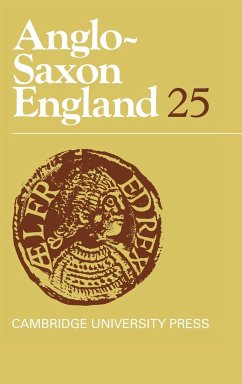
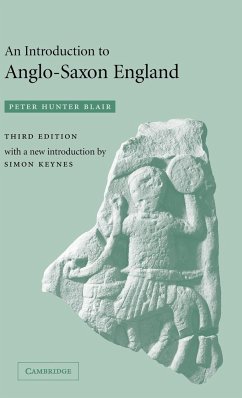
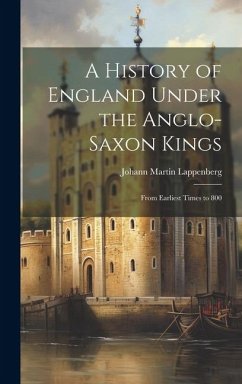
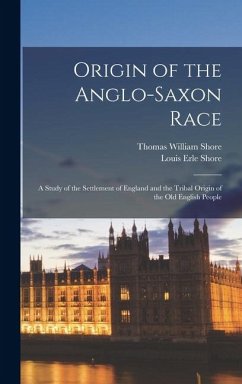
![A History of England Under the Anglo-Saxon Kings, [by] M. Lappenberg / Translated From the German by Benjamin Thorpe. New Ed., Rev. by E.C. Otté Cover A History of England Under the Anglo-Saxon Kings, [by] M. Lappenberg / Translated From the German by Benjamin Thorpe. New Ed., Rev. by E.C. Otté](https://bilder.buecher.de/produkte/66/66838/66838676n.jpg)
